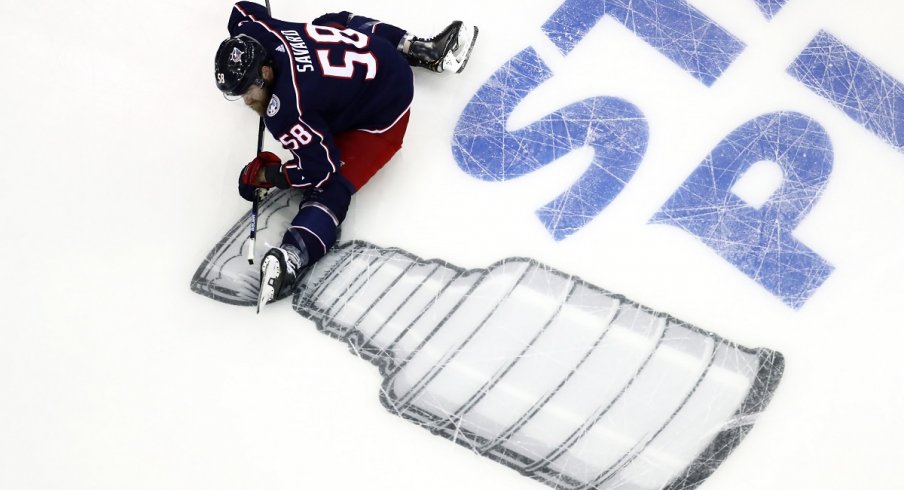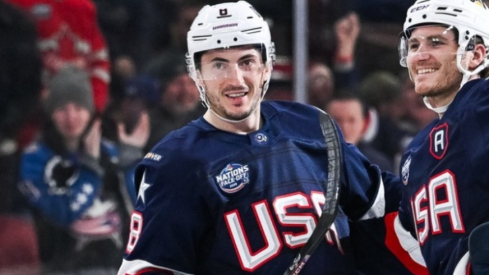With each ticking day, it appears less likely that the NHL will be able to finish their regular season before completing the Stanley Cup Playoffs.
While there is growing optimism that sports will return in the coming months, there simply may not be enough time for players to re-acclimate to game shape, complete the last three weeks of the regular season, and get through a grueling playoff season before turning around for next season, whenever that may be.
And that's if everything goes as planned, which, obviously, is far from a given. NHL Deputy Commissioner Bill Daly, in a conversation with The Athletic's Pierre LeBrun, sees a light at the end of the tunnel.
“Look, I think there’s some optimism,” Daly said. “The trending is positive right now in most of our markets. We have businesses and economies opening up, and that’s a good thing. Don’t know yet what it means to us. But we’re going in a positive direction.”
Aside from the obvious health concerns and time constraints that come with squeezing in the end of the regular season, the fact of that matter is that all teams have played 83%-86% of their season. We know, roughly speaking, who deserves to be in the playoffs and who does not. But that's where it gets tricky. Wherever the line in the sand gets drawn, teams/fans will shout injustice. There is no system that will please everyone. Hell, if the Blue Jackets were kept out of the playoffs as it stands today due to a fractionally-lower 0.9% points percentage (.579) compared to the New York Islanders (.588) despite having more points, fans would be livid (although perhaps not as much as Winnipeg, who would miss out by .01%).
Similarly, opening up the playoffs to all 31 teams would be burdensome at best, offensive at worst. It would admit outright that the regular season didn't mean anything (which, as well know, it totally does). A 20 teams makes some sense, where a natural 7-10 and 8-9 seed play-in game/series would lead to a traditional 16-team bracket. On the other hand, that could give lower-ranked teams, who would play meaningful games right away, an advantage, perceived or otherwise. It would also omit a team like the Florida Panthers, who were just one point back of the New York Rangers. Most importantly, it would eliminate the Montreal Canadiens and Chicago Blackhawks. For a league starved for revenues, including these Original Six markets would be enticing, to say the least.
The concept appears to be gaining traction from NHL insiders like Elliotte Friedman and LeBrun, who called the 24-team format a "front-runner". From LeBrun:
I spoke with one team executive Tuesday whose club is among the bottom seven teams in the overall standings, and his impression was that his team wasn’t returning to play this season. Which would indeed be the case if it’s 24 teams and not 31 teams returning to finish the season.
There's plenty of allure to a 24-team bracket. It would:
- Eliminate a desire to finish a regular season.
- Save the seven basement-dwelling teams from having to risk their health to play mostly meaningless games.
- Quench the thirst of NHL fans and franchises to play a long playoff that would, with or without fans in the stands, bring in revenues.
A 24-team bracket doesn't reconcile quite like an 8 or 16-team would, and so bye's would need to be implemented (again, it's unsure if a bye would help or hurt a team). Without bye's, the Blue Jackets, the 8-seed (going by points and not point percentage, so as to follow LeBrun's methodology) could be pitted against the 5-seed Pittsburgh Penguins. Two of the most injured teams in the NHL return in basically full health. How fun would that be?
It's too early to say with any certainty if or when the NHL will again play games in the coming months. But the Blue Jackets should find solace that their valiant efforts this season almost certainly won't be in vain, and take pride that they'll have a chance at competing for the Stanley Cup for a fourth consecutive season.


